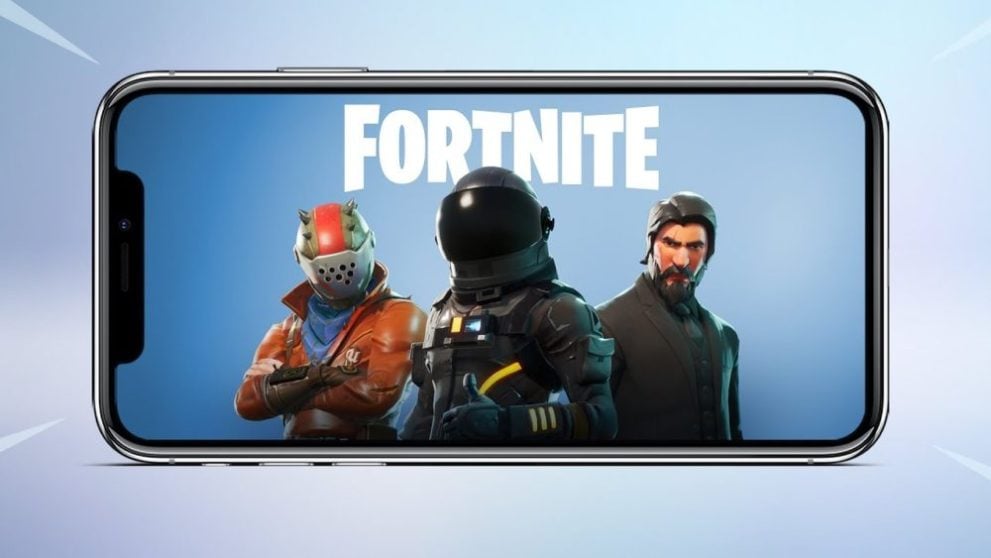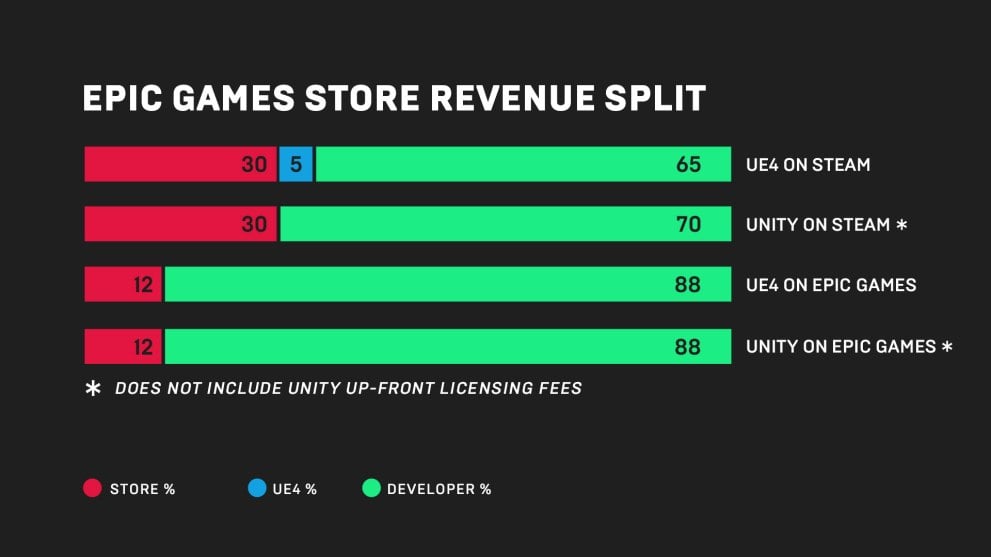As you might have heard, a new challenger is approaching the arena of digital distribution: The Epic Games store. Epic Games has conquered the battle royale genre; however, they aren’t satisfied with just having the most popular game in the world. They’re going for it all now with the incoming launch of the Epic Games Store, and Valve has been put on notice.
Why Steam Should Be Sweating over the Epic Games Store
Unification of a Mobile Games Store With a PC and Mac Store

Epic Games has their fingers in a few different pies today; they have a history as a mobile game developer and publisher, most notably with the mobile release of Fortnite recently, but also with smaller titles in the past, such as Infinity Blade.
The Epic Games Store is going to launch with a curated set of games available for PC and Mac, but Epic has stated that they also plan to open up their digital distribution store to Android and other open platforms throughout 2019. Extending their reach into the mobile games sphere automatically makes the potential audience much larger than chaining the store to PC and Mac would have.
Using mobile games as a foothold makes the Epic Games store an even more dangerous competitor to Steam; that expanded user base becomes more likely to use the Epic Games store on PC or Mac, should they decide to make the jump. They also have the potential to create a curated mobile games environment, avoiding the pitfalls of other digital distribution stores available on mobile, bringing in a more dedicated audience.
Why Steam Should Be Sweating over the Epic Games Store
The Revenue Split

Valve recently made some significant changes to their Steam Distribution Agreement. Up until this last Friday, Valve took 30 percent of all sales made on Steam. The new revenue split still has Valve taking 30 percent, but only until the game reaches $10 million in revenue on Steam; from there, Valve cuts their take to 25 percent. Then, once the game reaches $50 million in revenue on Steam, Valve cuts their take to 20 percent.
That all sounds like great news until you get a look at what the revenue split will be on the Epic Games store. The base split for all revenue that a game makes on their platform is that 88 percent goes to developers, and 12 percent goes to Epic. As if that weren’t enough, developers that are using the Unreal Engine for their game don’t have to pay the 5 percent engine royalty on any sales they make on the Epic Games store.
The chart above displays the disparity between the revenue on potential sales on Steam versus potential sales on the Epic Games store. Without a doubt, Epic is providing the more profitable service for developers; that’s especially the case for developers who are using the Unreal Engine for their game.
Why Steam Should Be Sweating over the Epic Games Store
Easy-to-Use Marketing Tools

Steam typically provides a news roundup whenever you click on the icon for your game from the Steam library menu; in it are details on new updates for the game and news stories from any relevant games media.
Epic is taking that idea, and moving it a few steps further. They’re inserting options that allow users to choose whether they want to be contacted via email regarding any content updates involving the game, making it easier for developers to keep their audience engaged with their product.
On top of that, the Epic Games store is offering developers a way of reaching new audiences, by making the relationship between influencers (YouTube content creators, Twitch Streamers, bloggers, etc.) and developers simpler. Epic is launching what they refer to as the “Support-A-Creator” program.
The idea behind the program is that the influencers in this program will create content on games; should the developer be apart of the program, the influencer will be able to share a referral code or affiliate marketing link as a purchasing option for the game. If people use that influencer’s referral code or affiliate marketing link to make a purchase, they receive a 5 percent share of revenue from the sale. To jump-start the program, Epic is covering this 5 percent fee for the first 24 months of its existence.
This simple marketing program, paired with the generous split that Epic is offering to developers, makes the Epic Games store the premier digital retail platform to sell games on.
